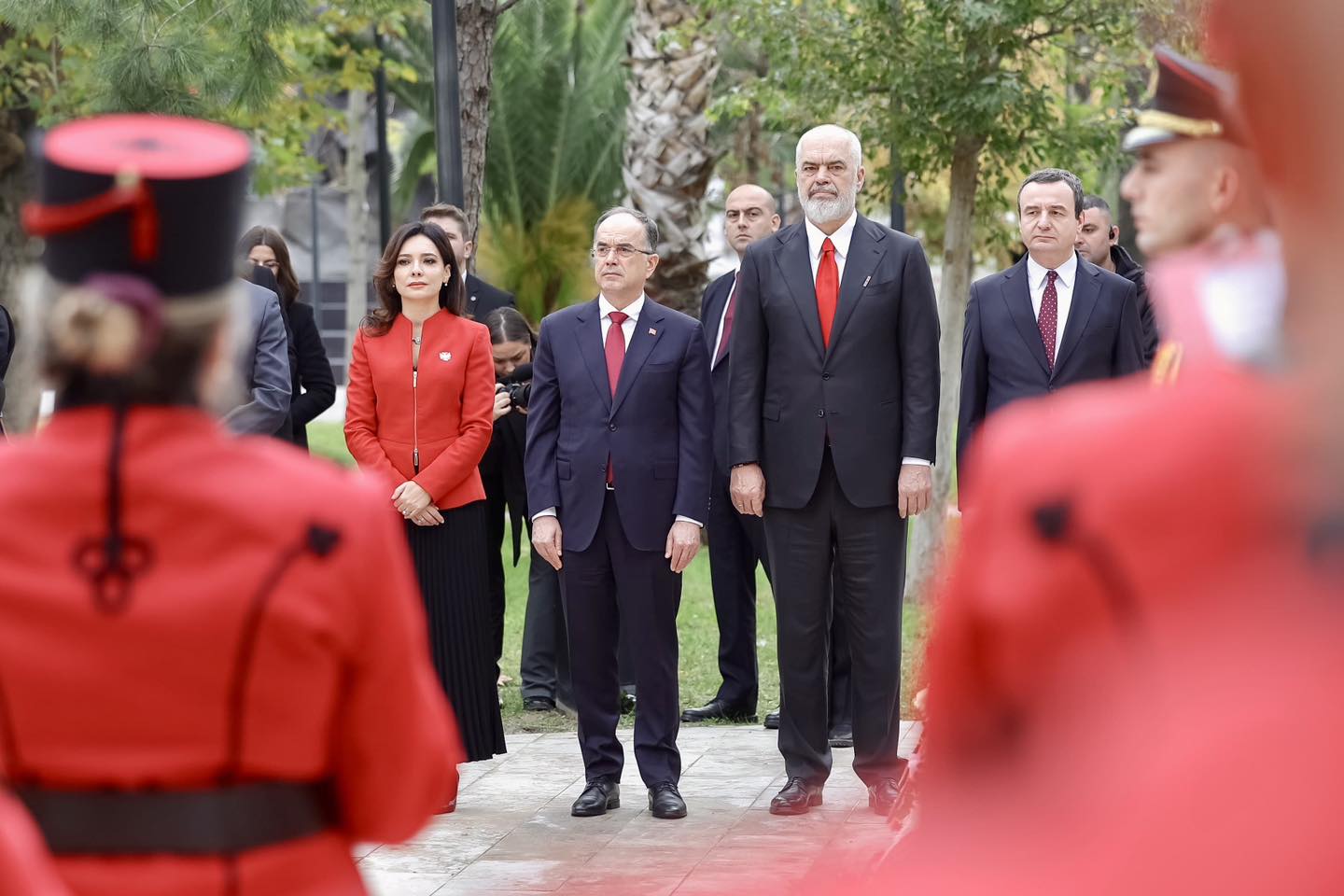Albania marks 112 years of independence

Albania celebrated its 112th Independence Day with nationwide and diaspora-wide festivities. In Vlora, the city where independence was declared in 1912, top leaders, including Prime Minister Edi Rama, Kosovo’s Prime Minister Albin Kurti and Albanian President Bajram Begaj attended the official flag-raising ceremony. Later in the day, representatives of the opposition paid homage at the Independence Monument, underscoring the day’s significance for all Albanians.
Why is this important: The presence of Kosovo’s Prime Minister Kurti highlights the shared history and unity of Albanians, despite their division into two states. This year’s attendance also suggests improved relations between Rama and Kurti after nearly a year of strained ties. The unity of leaders from both Albania and Kosovo underscores the continued cultural and historical bond between the two nations.
Festivities across borders:
- In Kosovo: Citizens dressed in traditional attire crossed into Albania to join celebrations. At the Morina border, a ceremonial parade by veterans of the Kosovo Liberation Army and members of the Kosovo Security Forces symbolized the enduring connection between the two nations.
- In Tirana: The capital hosted a grand parade featuring 350 artistic groups representing 150 cities and regions from across Albania and its diaspora. Over 10,000 participants and spectators lined the streets of the “Martyrs of the Nation” boulevard, making Tirana the focal point of the celebrations for the second consecutive year. A group of 25 Albanians from New York also unveiled a massive red-and-black flag.
- Across Albanian communities: Independence Day was marked in Albanian-speaking regions in North Macedonia, Montenegro, and among diaspora communities worldwide, showcasing the global reach of Albanian pride.
- Opposition’s perspective: Sali Berisha also addressed Albanians on this important day. Just recently released from nearly a year of house arrest, he addressed supporters via video. In a message that offered a stark contrast to the spirit of festivity that reigned across the country, Berisha accused the government of turning Albania into a “narco-state” and undermining its sovereignty. Berisha criticized Prime Minister Rama’s leadership, framing his legal battles as politically motivated. He also accused the U.S. of interfering in Albania’s sovereignty by declaring him non grata, though he expressed confidence that American values will eventually prevail.
Historical context: On November 28, 1912, 40 Albanian patriots from across the Albanian territories in the Balkans, led by Ismail Qemali, declared Albania’s independence from the Ottoman Empire. Qemali, often referred to as the “Father of the Nation,” became the country’s first Prime Minister. The Assembly of Vlora established Albania’s first government, laying the foundation for its modern statehood.
The declaration of independence marked the culmination of a long and arduous struggle for Albanians, who were the last people in the Balkans to break away from the Ottoman Empire. The fight for independence was particularly challenging due to the division among Albanians but also due to the geopolitical realities of the time. Many areas inhabited by Albanians—including Kosovo, parts of what are now Montenegro, North Macedonia, and Çamëria in northern Greece—faced the risk of being absorbed by the newly established Balkan states and the Ottoman Empire seemed to offer the best defense against partition. This fragmented landscape made the Albanian quest for sovereignty both complex and fraught with obstacles.
Shortly after the declaration of independence, the Balkan Wars and World War I led to the occupation and eventual incorporation of many areas that had declared independence as part of Albania on November 28, 1912, into neighboring states. This left Albania as a rare example of a nation where the mother country was surrounded by a larger Albanian population and territory outside its borders than within.
This shared history of division and struggle underscores why November 28, 1912, holds such profound significance for Albanians, not just in Albania but across the region and the diaspora, from Kosovo and North Macedonia, to Montenegro and the Presevo Valley and, of course, from the far flung Albanian Diaspora. The date is a unifying symbol of resilience and the enduring spirit of independence for Albanians worldwide.


